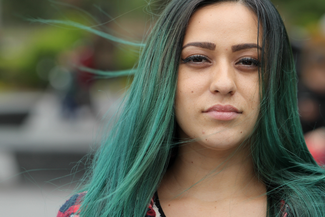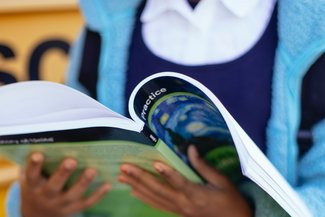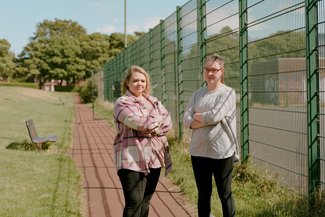
Young Women's Justice Project
Engaging with young women, front-line staff and other experts to build an evidence base about the needs of girls and young women in contact with the criminal justice system.

5 Mar 2024
Agenda Alliance and Women in Prison have responded to a report from HM Inspectorate of Prisons’ on Wetherby Young Offender Institution, which holds girls and boys, released today (Tuesday 5th March).
We are deeply concerned to see this inspection report detail troubling treatment of children in custody, including using pain-inducing force and strip searches. In one instance, a girl was restrained and strip-searched twice by an all-male group of officers to prevent her from self-harming.
Self-harm in Wetherby YOI is the highest in the country, and girls account for “extremely high” levels of self-harm.
Agenda Alliance’s own recent research has focused on the significant rates of self-harm among young women in prison, whose needs go unmet due to lack of appropriate care paid to both their gender and age. This is no different at YOI Wetherby, where girls make up a tiny minority of the children held there.
HM Inspectorate of Prisons noted that there was no effective model of custody for girls, and the YOI was “unable to meet the needs of some of the most vulnerable girls in the country.”
Indy Cross, Chief Executive of Agenda Alliance:
“It is chilling to read that male guards at YOI Wetherby felt an appropriate response to a girl in such significant distress was to strip-search her as a group. The idea that a young woman at risk of self-harm faces the use of force and further trauma as a means of ‘protection’ should shock us to our core. And yet, it is how children in custody are being treated.
Agenda Alliance’s research has shown girls need specialist, holistic, community-based support appropriate to their age and gender, not aggressive, punitive responses in male-dominated environments which are totally inappropriate for their needs.
As we have seen in reviews of previous notable cases, such as that of Child Q, strip-searches cause significant trauma and distress to those who experience them. It is likely this event will have seriously worsened this girl’s mental health, causing a vicious spiral. Girls in custody usually have complex needs and long histories of trauma, meaning they shouldn’t be imprisoned in the first place.”
Sonya Ruparel, CEO of Women in Prison:
"Reading that girls in prison have been subjected to “pain inducing techniques” and “strip searches under restraint” by those responsible for their care simply beggars belief.
This is no way to treat some of the most disadvantaged girls in our society. Girls who've been criminalised require gender specific, trauma informed support in their communities, not imprisonment and traumatisation."

Engaging with young women, front-line staff and other experts to build an evidence base about the needs of girls and young women in contact with the criminal justice system.

Indy Cross, Chief Executive of Agenda, responds to the case of Child Q and discusses how to tackle the racial discrimination experienced by Black and minoritised girls.

A new briefing paper published today by Agenda Alliance and Alliance for Youth Justice (AYJ) reveals the severe mental health problems facing young women in our prisons.